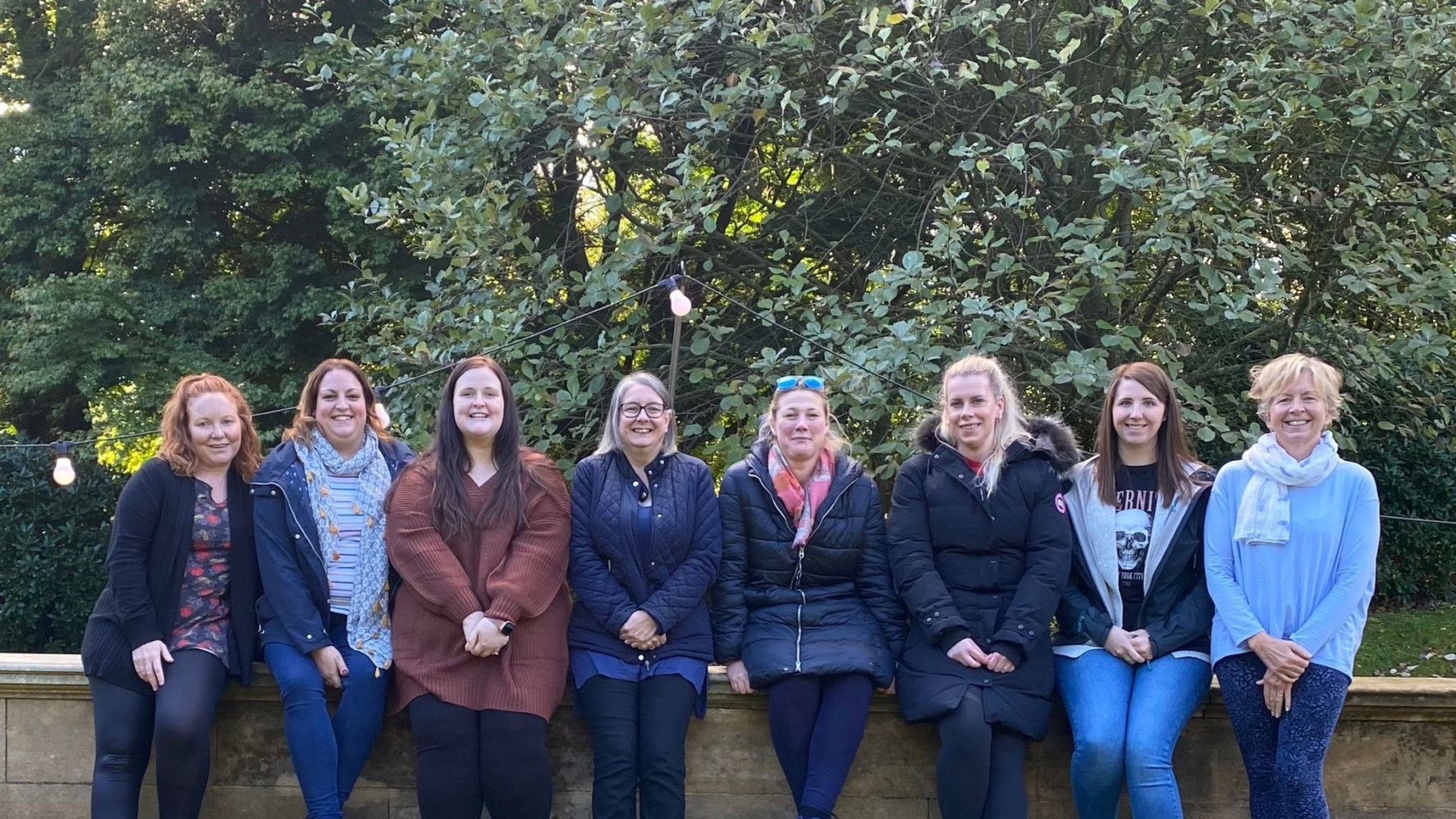The Queen’s Nursing Programme is for community nurses in Scotland who want to discover and bring out their inner leader. Here, some of the Queen’s Nurses from the 2020 cohort tell us about their experience of the programme, including what they learned and how they are using their new skills to advocate for patients and improve community nursing.
The Queen’s Nursing Programme helps community nurses in Scotland discover and develop their leadership skills. We recently shared details about the programme and the support it received from the DMT as one of our success stories.
In this blog post, seven Queens’ Nurses from the 2020 cohort, Claire Adamson, Andrea Johnstone, Annie MacDonald, Annie Maclean, Nicola Dow, Keara Farrell, and Gill Dennes, share their experience of the programme, what they’ve learned, and how this knowledge is impacting their work caring for older people.
Nomination and entry to the programme
We were all nominated for the Queen’s Nursing Programme by our leaders. Although some of us had never heard of Queen’s Nurses before, some of us had been lucky enough to work with graduates from previous years.
“I’ve got quite a close relationship with a Queen’s Nurse from the 2017 cohort. How she speaks and presents herself, everything she’s done, and how she’s been able to bring people with her makes her such an inspirational leader.”
Many of us saw the programme as a chance to raise the profile of our work as community nurses within our health boards and further afield. We wanted to become advocates and show the value of different types of community nursing.
“For me, it was an opportunity to raise the profile of care home nursing. I wanted to show what actually happens when you’re looking after older adults and the magic that you just don’t get working in a hospital setting.”
When we first applied, many of us didn’t have a clear understanding of what the programme would entail. The application process required a lot of self-reflection, a concept which was new to most of us, as we spend our days thinking about the needs of others. This helped us begin celebrating our work, building a new narrative and seeing ourselves differently before the programme even began!
Overcoming imposter syndrome
“I remember us arriving on the first day in March 2020, and through speaking to different people, it seemed that everyone had some sense of imposter syndrome. We were all looking at the person next to us and thinking, ‘Oh my god, I can’t possibly deserve this!’” As the programme continued, we began to feel so valued that we knew we were enough and we deserved to be a part of the programme.
One of the most important things we’ve taken away from the programme is the importance of self-care. We can only be the leaders we want to be – and achieve what we want to achieve – if we take care of ourselves first, but this isn’t always easy as nurses.
“Everyone talks about self-care, but to actually do it is such a different experience, and I think this programme teaches you how to do it, live it, and share it. It’s so much deeper than just that one word suggests.”
Networking and collaborating
The programme connected us with other nurses from all over Scotland, from a variety of different backgrounds. It was hugely powerful, especially for those of us who don’t work with other nurses regularly and can feel isolated in our community nursing roles. Our fellow Queen’s Nurses provide us with the support network we need to face problems. If we need to, we can always reach out to the group for support and ideas about overcoming challenges.
We’ve also learned how to listen to others more deeply, consider their feelings and work more collaboratively, helping those around us to find their own solutions to problems instead of just trying to ‘fix’ everything ourselves.
Making change
The Queen’s Nurses Programme has helped us develop a person-centred approach to caring for people. It’s also given us the confidence we need to use our voices to advocate for the people we care for and challenge things that need to change. This approach was critical during the pandemic, when many older people we care for could not access their usual services and were subjected to many restrictions, particularly in care homes.
Instead of blindly following risk assessments and concentrating on ticking boxes, we have been able to think about what is best for each patient. “The programme has given us the bravery and confidence we needed to be able to question risk assessments. Before Queen’s Nurse, I wouldn’t have questioned it. I would have just gone along with it but I am much more person-centred now.”
We hope that by putting older people at the centre of their own care we can help get their voices heard, better meet their needs and ensure they can live the happy life they deserve. “Thanks to the Queen’s Nurse Programme, we’re now aware that we speak for the patients, and we have the strength to do so.”

